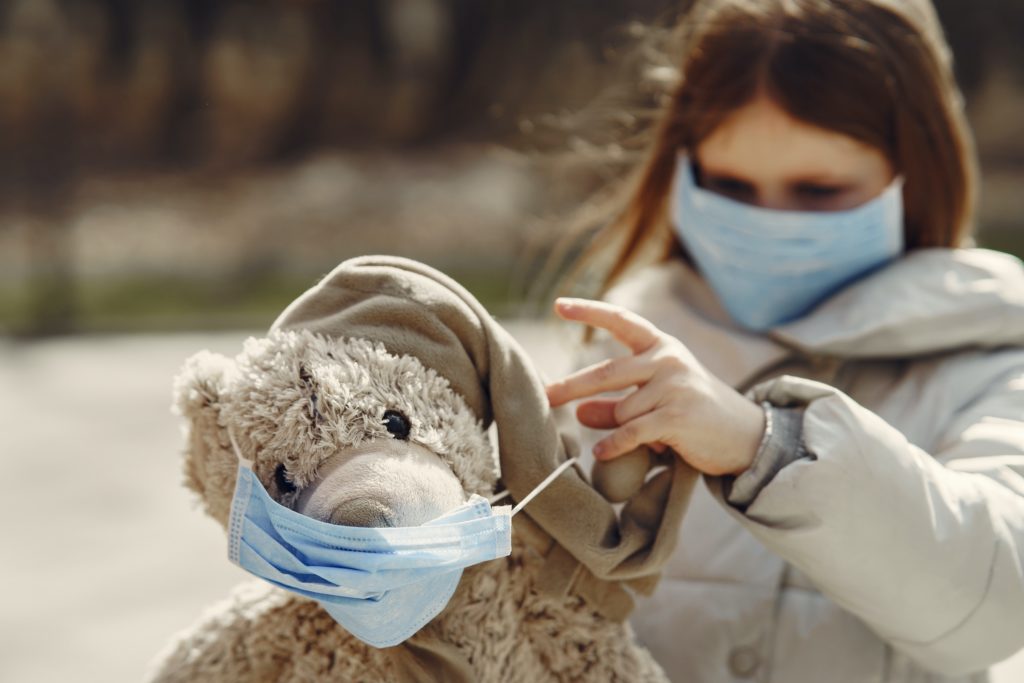4 Min Read
Parenting as a Frontline Medical Worker in the Age of COVID-19
The current COVID-19 pandemic poses a unique set of challenges for frontline parents who are social workers, medical workers, first responders, human services workers, and professionals in other areas. As the COVID-19 pandemic continues throughout the United States, frontline workers and their families are grappling with how to live safely and whether to isolate themselves from loved ones to keep everyone safe.
Health workers must navigate a delicate balance between supporting their patients, families, and themselves. In addition to the demands of parenting, the coronavirus disease has forced medical professionals on the front lines to confront several new challenges:
- Increased patient volumes: The increased numbers of patients and the severity of their needs require health care workers—especially hospital staff in emergency rooms—to work long hours to provide care outside of their regular schedules. Medical personnel, social workers, clinicians, emergency responders, workers in psychiatric hospitals, and students in medical schools have taken on new responsibilities to stretch staff-to-patient ratios in the interest of disease control.
- Resource scarcity: The COVID-19 pandemic has led to stress among health care workers who fear that they may have to watch their colleagues, friends, and family members become ill. This fear is exacerbated by shortages of personal protective equipment (PPE) like N95 masks across the United States, especially in highly populated areas like New York City.
- Uncertainty: Information on how to properly manage the novel coronavirus undermines the confidence and professional judgment of healthcare providers, particularly emergency responders. With clinical trials underway and a constant flow of information from public health officials like the World Health Organization, CDC, and Food and Drug Administration, keeping up with updates from the last week can add to the stress of providing care.

Mental Health and COVID-19
With demanding workdays and high emotional intensity, the healthcare environment places healthcare workers at a higher risk for mental illness than the general population. According to the National Alliance on Mental Health (NAMI), the rising prevalence of excessive stress and other mental health problems among healthcare workers may interfere with access to care, patient safety, and care quality.
In the United States, women are disproportionately affected by the COVID-19 pandemic on the frontline. According to the United States Census Bureau, women hold 76% of healthcare jobs. In nursing, where health care workers are on the front lines of the patient interactions, women account for over 85% of the workforce. Additionally, according to a recent analysis conducted by the World Health Organization (WHO), women account for roughly 70% of global healthcare workers.
When ignored, mental health conditions like bipolar disorder, anxiety disorder, and traumatic stress disorder can detrimentally affect health care providers and patients. Excessive stress and burnout can increase your risk factors for further mental health problems, lead to self-destructive behaviors like substance abuse, and lower your immune system’s ability to fight disease. If you’re struggling to cope, it’s important to remember that help is available.

Find a Therapist to Navigate Parenting as a Frontline Medical Worker
Get personalized matchesParenting as a Frontline Worker
With many health care providers experiencing significant increases in work hours, frontline parents face serious challenges in maintaining healthy relationships with their children. Determining how to live safely and whether to isolate yourself from your family members can feel stressful and overwhelming, and it’s essential to take care of your mental and physical health to avoid excessive stress. If you’re struggling to navigate the current situation, consider exploring the following options.
- Take extra protective measures: Given the shared spaces, close contact, and the possibility of asymptotic carriers in the healthcare environment, you might be fearful of transmitting the virus to your children or family members. Changing your clothes at your home’s entryway, taking a shower before interacting with family members, regularly disinfecting surfaces, and preparing a quarantine room in your home can help protect your family. Additionally, set aside time to talk to your children about your responsibility during this time.
- Stay connected: Reaching out to family members via social media and video chat can help you stay connected and allow you to express your behaviors and responses toward the current situation. If taking extra precautions at home is not possible, consider sending your children to live with relatives.
- Practice self-care: For many health care providers, it can be easy to emphasize the importance of self-care to patients while downplaying themselves. Self-care may involve doing something you enjoy with your family, focusing on your physical health, visiting therapy dogs, or joining a NAMI family or NAMI peer support group. In addition to self-care, practice self-compassion by taking the time to look back on the hard work you’ve done.
- Take time off: Medical professionals are at a higher risk of burnout, chronic stress, and other mental health problems during this time. Additionally, with longer work hours, many hospital staff and health care providers are struggling to find safe care for their children. While it can be challenging to take time off from work, consider using sick days or requesting a short-term leave of absence in the coming weeks to recharge and focus on your family. During your time off, avoid scrolling through social media or watching the news to keep up with the latest statistics on COVID-19 cases.
- Seek professional help: If you’re struggling to balance your mental health, relationships, and work, support is available. With more therapists offering online therapy programs over video chat and mobile apps, frontline healthcare workers can attend therapy sessions while adhering to social distancing guidelines. Whether you’re interested in couples therapy, cognitive-behavior therapy, psychotherapy, group therapy, or talk therapy, working with a therapist can help you find ways to cope.
Coping During COVID-19
Parenting as a frontline worker during the age of COVID-19 can feel overwhelming, and it’s understandable to be having a tough time. Because medical staff are especially vulnerable to mental disorders and mental health problems such as anxiety disorder and traumatic stress disorder, given the gravity of the new coronavirus, therapy can serve as a valuable tool in managing your mental health.
If you’re not sure how to move forward, consider reaching out to a mental health professional through WithTherapy. Reaching out for mental health support can be intimidating. WithTherapy’s unique matching tool will connect you to expert therapists who match your preferred gender, race, sexual orientation, education, background, or other desired criteria to ensure a good fit. Counseling and therapy can help you effectively manage your mental health, overcome stigma, and develop healthy coping strategies to handle stressful situations at home and on the frontline.
Find a Therapist to Navigate Parenting as a Frontline Medical Worker




